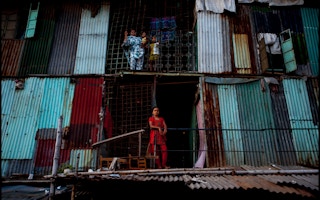Amit Bouri is evangelical that members of his network, and many more like them, can right the wrongs of the world using the muscle of their money.
And, he said, he knows what needs to change to make that happen: the way the world’s financial markets work.
“The system right now is not sufficiently creating an environment where there is equality and sustainability,” he said by phone from New York.
Bouri heads the Global Impact Investing Network (GIIN), a non-profit he co-founded in 2009 that supports and encourages impact investing - investments that produce positive social and environmental change, as well as generate a profit.
“We are positing a very aspirational vision where all investors take into account social and environmental impact, where this becomes part of the new normal of how people invest.”
According to Oxfam, a charity, the majority of the world is missing out. Last year the poorest half of the global population saw no increase in their wealth, while 82 per cent of the wealth that was generated went to the richest 1 percent.
“
The growing effects of inequality and climate change on market sustainability mean major fiduciaries are thinking about how they can incorporate impact into their investment strategy.
Amit Bouri , co-founder, Global Impact Investing Network (GIIN)
Bouri said impact investing goes beyond avoiding harmful investments like tobacco and weapons, and focuses on investing proactively to drive change.
Examples include the $75 million fund that built 10,000 affordable homes for low-income families in rural Brazil, and clean energy systems for those with limited access to power, including schools and hospitals, that investors funded in India.
The amount of money going into impact investing is rising by about 18 per cent a year, said the GIIN, whose 2017 survey found the impact investing market was worth at least $114 billion.
“It is possible to make a profit and do good for the world. That is what has captured the attention of so many people when it comes to impact investing,” Bouri told the Thomson Reuters Foundation.
He expects impact investing will keep growing, not least because reports have found millennials are more interested in such issues than their parents’ generation - as are women investors - and will inherit wealth in years to come.
“That wealth is now going to be controlled by people that care about sustainability and impact,” he said.
Bouri said the GIIN has also fielded more enquiries from institutional investors in the last 18 months - the pension funds and insurance companies that collectively manage trillions of dollars in assets.
“These are firms that have fiduciary responsibilities they take very seriously: (an) obligation to pay back pensioners in 20 or 30 years from now,” he said.
“The growing effects of inequality and climate change on market sustainability mean major fiduciaries are thinking about how they can incorporate impact into their investment strategy.”
Aside from housing and clean energy, impact investing was also effective in areas such as conservation and access to clean water, said Bouri.
Yet he feels its greatest contribution might lie in showing how finance can work in a different way.
“The GIIN absolutely believes that impact investing has a tremendous opportunity to grow - not just on its own, but in influencing how all investing is done. In doing so, we have the potential to set the world on a different trajectory,” he said.
This story was published with permission from Thomson Reuters Foundation, the charitable arm of Thomson Reuters, that covers humanitarian news, women’s rights, trafficking, property rights, climate change and resilience. Visit http://news.trust.org)










